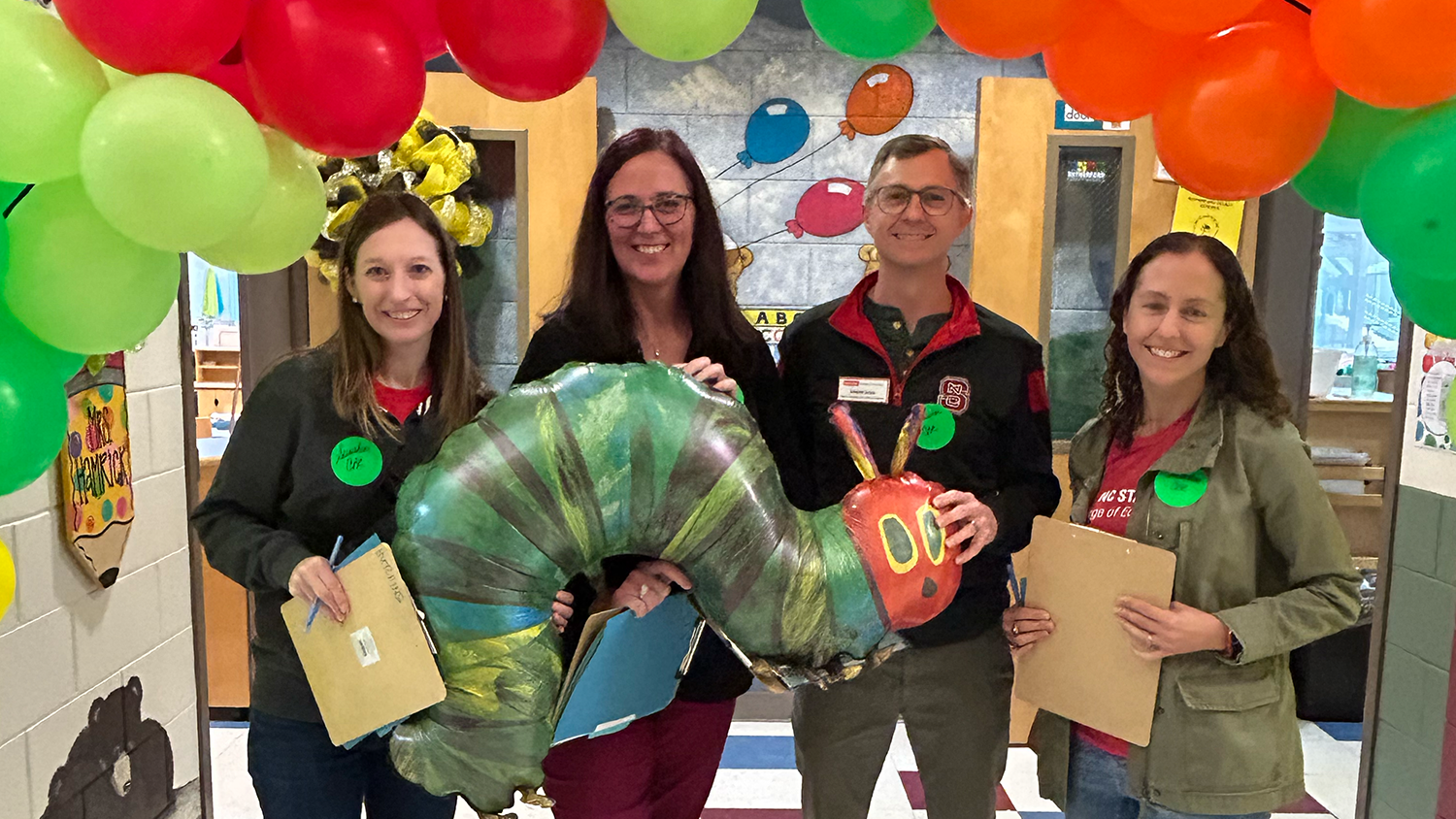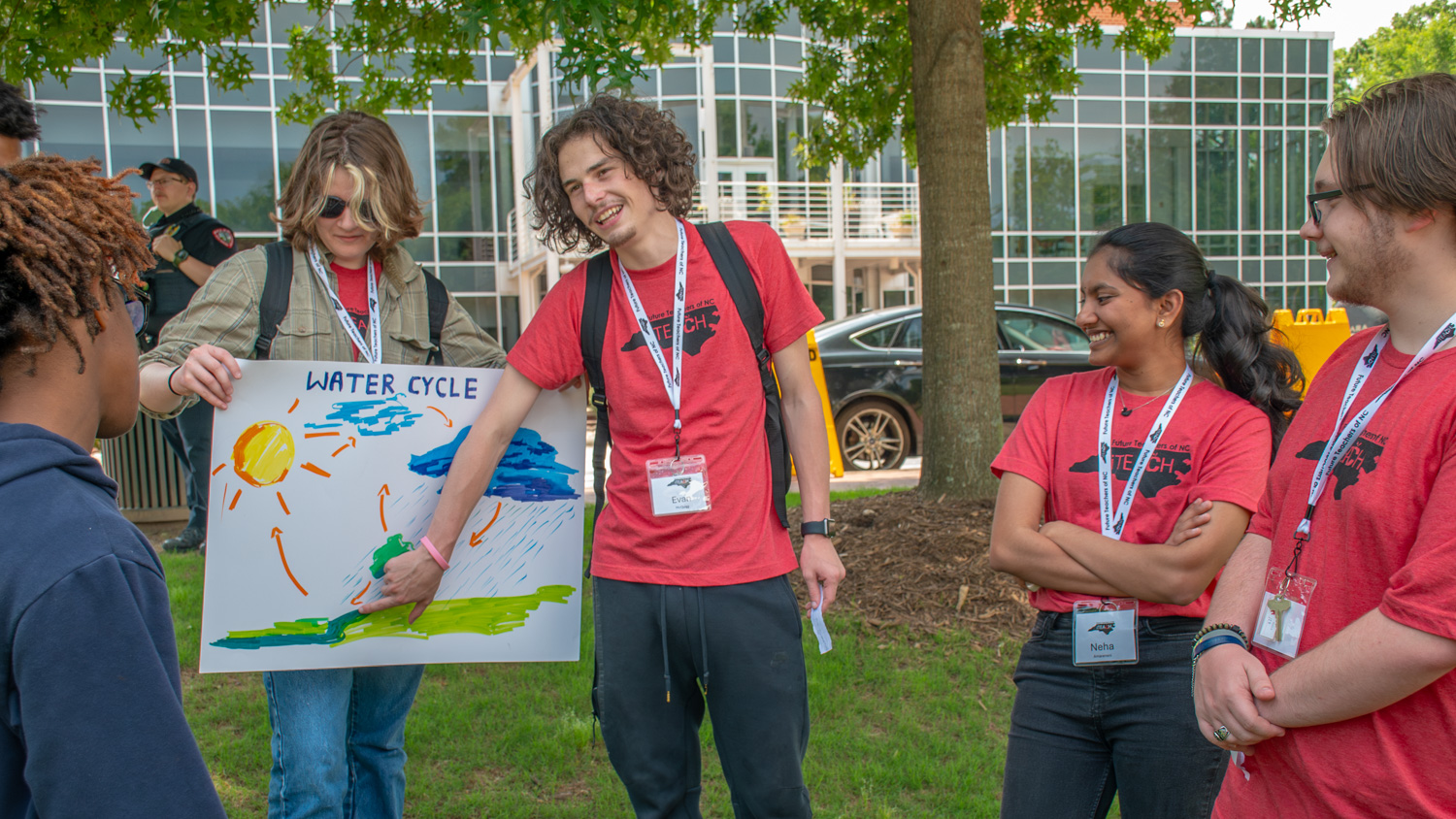Community College Leaders Address Ways to Increase Postsecondary Credential Attainment at Belk Center’s Presidents’ Academy Symposiums

The NC State College of Education’s Belk Center for Community College Leadership and Research assisted community college leaders in creating action plans to improve student outcomes during two Presidents’ Academy symposiums in March. With the coronavirus (COVID-19) outbreak shuttering institutions since the events, the Belk Center will continue to support the action plans as they change in this new context while recognizing that the work at the symposiums fueled innovative ideas that can help colleges better serve all students.
“Student success will look different at community colleges as we move through these very challenging times, so providing support to our community college leaders is even more essential now,” said Alumni Distinguished Graduate Professor Audrey Jaeger, Ph.D., executive director of the Belk Center.
[spotlight-box label=”” img=”” heading=”Belk Center Supports Community Colleges During COVID-19″ cta=”Read More” url=”https://ced.ncsu.edu/news-new/news/2020/04/07/belk-center-offers-webinars-one-on-one-support-for-community-college-educators-during-covid-19-outbreak/”]Shortly after the Belk Center hosted the Presidents’ Academy Symposium, community colleges began to close and transition to online-only courses to help stop the spread of the coronavirus (COVID-19). During this transition, the Belk Center has shifted the focus of the support they provide to help community college educators develop remote learning opportunities and access necessary resources.[/spotlight-box]
A total of 222 community college presidents and their college teams representing 40 of the state’s 58 community colleges attended the two-day symposiums, which were held on March 2 and 3 in Durham and March 4 and 5 in Charlotte. The events built on two previous Presidents’ Academy Events, held in May 2019 and September 2019, which aimed to help community colleges address a goal of improving economic mobility and workforce development by graduating more North Carolinians with high-quality postsecondary degrees or credentials.
“The Presidents’ Academy event provided college teams with the time, space and resources to engage in planning specific strategies for their colleges towards this goal,” said Kim Sepich, Ed.D., director of executive leadership programs at the Belk Center. “Community colleges are nimble by nature and continuing the Presidents’ Academy events will give leaders opportunities to draw upon the collective ability of all colleges to positively change lives as the state’s economy evolves.”
During the event, community college leaders were divided into small groups and guided by former community college presidents and Belk Center faculty as they shared their progress in addressing student outcomes and built an action plan for the future.
Building upon data provided to them by the Belk Center, community college presidents and trustees crafted problem/opportunity statements that addressed the need to serve populations who are currently not being reached by their institutions. These included traditionally underserved populations, people who completed some college but didn’t earn a degree and high school graduates who have not enrolled in a postsecondary institution.
Community college leaders also looked at ways to improve retention and completion among currently enrolled students and ways to offer or expand programs that are aligned with labor market needs and offer sustainable living wages for graduates.
“There was open dialogue and great exchange. I think people left with the feeling that they could come up with some good action steps that lead to the kind of outcomes they want,” said Mary Rittling, Ed.D., a Belk Center professor of the practice who helped facilitate two sessions. “People were also interested in learning from each other and exploring the potential for collaborations.”
Greg Williams, Ed.D., president of Odessa College in Texas, delivered a keynote address entitled “There is a Way to Win Every Game” during the Durham symposium while Ed Massey, Ph.D., president of Indian River College, delivered a keynote address entitled “Realizing Potential for Transforming Change — It’s About People” in Charlotte. Both speakers shared stories of how they aligned their colleges’ culture with desired student outcomes and how that change led to greater student success.
“Our two keynote speakers sparked especially beneficial discussions about how colleges align their work to meet the needs of students and their service areas,” Sepich said. “Their stories resonated with participants and informed college strategy planning the next day. Most teams referred to the presentations in their discussions and used the messages to design specific goals to improve student outcomes.”
Following the events, community college leaders shared that they would like additional support from the Belk Center in data exploration, facilitating further discussion and hosting future meetings where presidents and trustees learn from one another.
Rittling said that the Belk Center is currently working on that goal, while also addressing new ways to provide professional development for community college leaders as they seek to provide instruction for students as community colleges transition to online learning during the coronavirus (COVID-19) outbreak.
- Categories:


